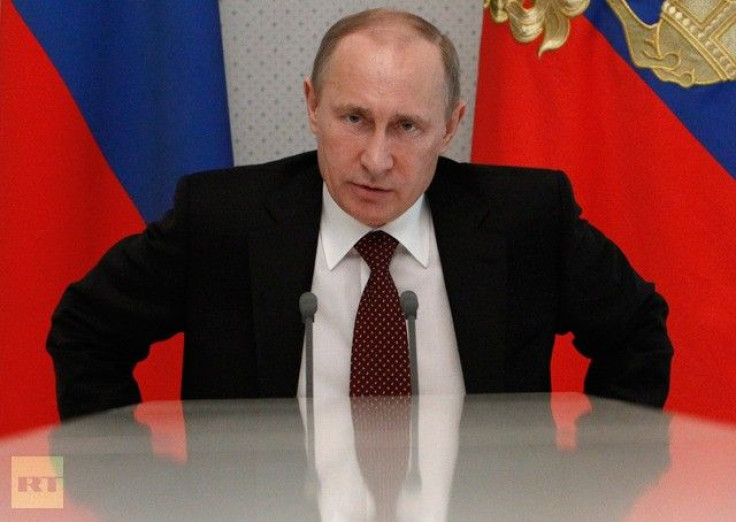Russia Rules Out Pre-emptive Nuclear Attack But Will Strike When Provoked or Under Threat – Report

As reports came out that Russia under President Vladimir Putin is getting overly aggressive in Europe, per NATO claims, analysts begin to entertain fears of pre-emptive nuclear strike by the Kremlin.
The NATO leadership announced this week that Moscow is engaged in a high-level of military activities in the Baltic region, underscored by the 400 times that alliance jet fighters were scrambled this 2014 in response to incursions made by Russian military planes.
NATO declared that Russia's recent actions "can be destabilising and potentially dangerous," according to The Daily Mail.
Now the question begs: Will this bold display of power foreshadow the escalation of hostilities?
No pre-emptive strike
While the tense posturing between Russia and the West - the U.S. and NATO specifically, could potentially graduate into a shooting a war, the Kremlin, as dictated by its recently revised military doctrine, will not fire the first shot, according to a new report by RT.com.
"The renewed draft of the military doctrine would not have a reservation for preventive nuclear strikes on potential enemy," the news site added, pointing to unnamed insiders from Russia's Defence Ministry as sources.
It was indicated too in the same report that pre-emptive nuclear attack on specifically identified enemies was deliberated upon by the Russian military and political leaders but the option was not included in the doctrine that was finalised in 2010.
Russia, however, is not discounting the use of nuclear weapons, which they will be willing to rain down on deemed aggressors when provoked. "The Russian Federation reserves the right to use nuclear weapons in reply to strikes with nuclear weapons or other weapons of mass destruction on its territory or on the territory of its allies," the doctrine reportedly states.
Putin, empowered to make the final decision on the matter, can also push the button that would launch missiles with nuclear warheads "in case of an aggression with use of conventional weapons that put the very existence of the Russian Federation into question."
Moscow also regards its vaunted nuclear arsenal as a solid deterrent against attacks.
"We have never diminished the importance of nuclear weapons - the weapon of reprisal - as the great balancer of chances," RT.com reported Russian Deputy PM Dmitry Rogozin as saying in a statement issued last year.
And Rogozin stressed at the same time that Russia will not think twice in retaliating when attacked or when it sensed grave threat.
Perceived threats
Not surprisingly, Moscow pinpoints Washington and its NATO allies as threats. "Russian foreign policy appears to be based on a combination of fears of popular protest and opposition to U.S. world hegemony," writes Jonathan Masters, deputy editor for the Council on Foreign Relations.
Putin is apparently convinced that the U.S. and NATO is undermining Russia's influence in the former Soviet Union republics, according to Masters, likely making the two as prime targets of Russia's nuclear attack blueprint in the event World War III erupts.






